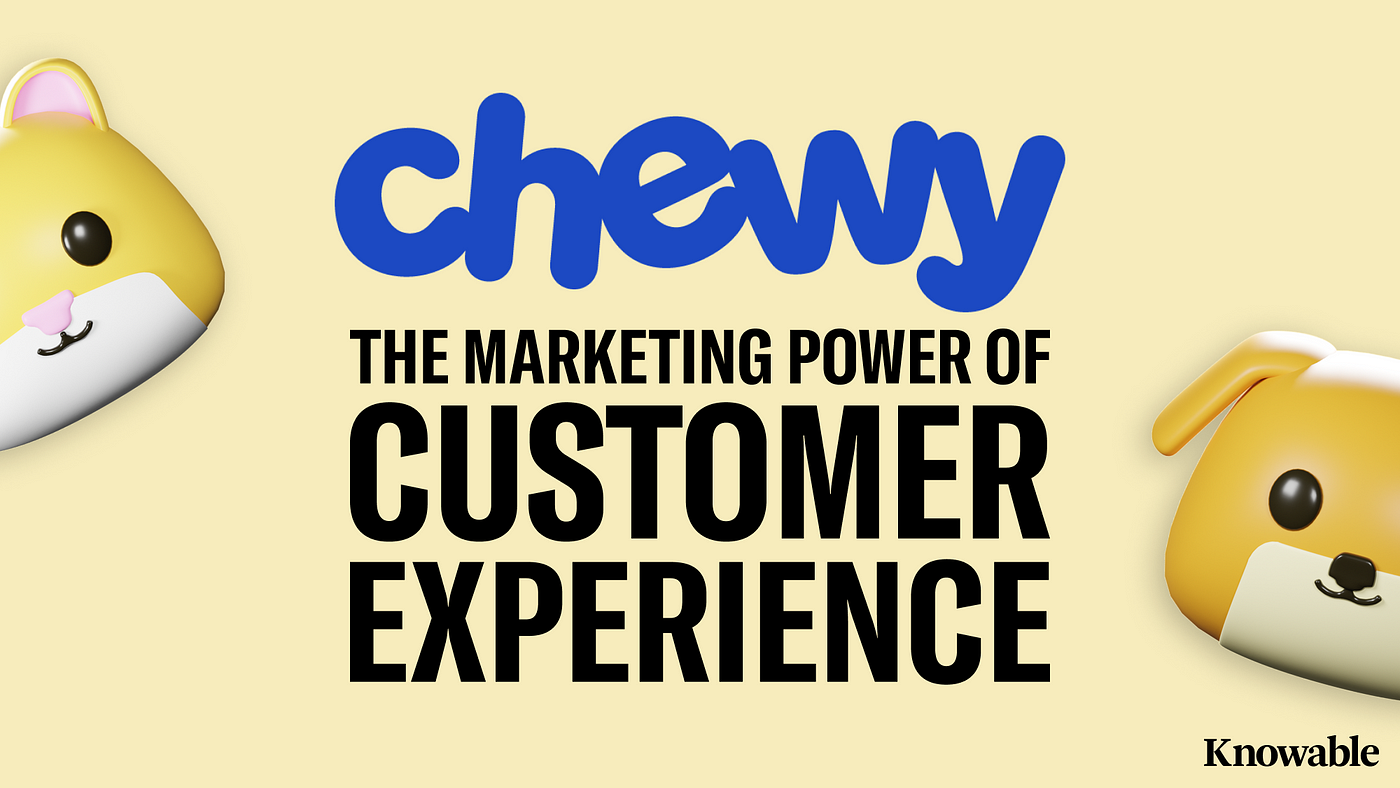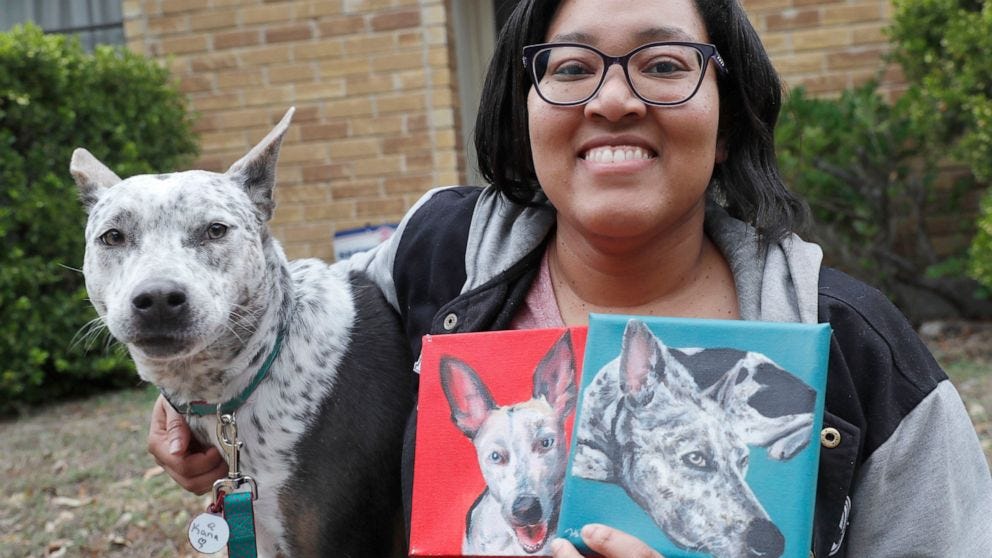

Case Study: Chewy and Customer Experience as a Marketing Wedge
source link: https://medium.com/knowable/case-study-chewy-and-customer-experience-as-a-marketing-wedge-bae1c5891fe1
Go to the source link to view the article. You can view the picture content, updated content and better typesetting reading experience. If the link is broken, please click the button below to view the snapshot at that time.

Case Study: Chewy and Customer Experience as a Marketing Wedge
How Chewy stands out in a hypercompetitve e-commerce market by obsessing over customer experience — plus 5 key takeaways for founders and marketers
Usually when a brand goes viral on Twitter, it’s for all the wrong reasons. (See: World v. PepsiCo and Jenner, K., 2017.)
But recently, Chewy, the pet food and supplies e-commerce biz, went mega-viral for all the right ones.
It didn’t happen because of some marketing stunt or PR blitz. It happened 100% organically as the result of one customer’s tweet.
This is the story of how Chewy won Twitter (for a few days anyway) because it did what most other brands of its size never seem to: The right thing.
Plus, five key takeaways for founders, marketers, and managers inspired by Chewy’s human-centric approach to customer experience.
How Chewy’s customer service went viral
Back in June, Anna Brose sent this tweet:
First: Rest in peace to Anna’s dog Gus. He was a good boy.
Anna and Gus’s story racked up three-quarters of a million likes, 50k thousand retweets, and was picked up by mainstream outlets like Time and Fortune.
Why did it resonate?
Because people simply don’t expect that level of thoughtfulness and empathy from big companies. These days, just getting someone on the phone feels like winning the lotto.
The bar is low.
The customer service of “doing things that don’t scale”
Chewy’s response to Anna may be one of the best examples of “doing things that don’t scale” in recent business history.
Y-Combinator co-founder Paul Graham explained the concept of doing things that don’t scale in a 2013 essay:
“One of the most common types of advice we give at Y Combinator is to do things that don’t scale. A lot of would-be founders believe that startups either take off or don’t. You build something, make it available, and if you’ve made a better mousetrap, people beat a path to your door as promised. Or they don’t, in which case the market must not exist.
Actually startups take off because the founders make them take off. There may be a handful that just grew by themselves, but usually it takes some sort of push to get them going. A good metaphor would be the cranks that car engines had before they got electric starters. Once the engine was going, it would keep going, but there was a separate and laborious process to get it going.”
In the almost ten years since Graham published his essay, it’s become required reading for aspiring founders everywhere. Today, the philosophy is so deeply ingrained in startup conventional wisdom that many consider it trite. But Graham’s advice still holds true. Startup success often hinges on founders’ willingness to roll up their sleeves and do the unsexy, manual, non-scalable things. Sometimes, they have to brute force their way into relevancy. Doing things that don’t scale is what puts the “scrappy” in “scrappy startups.”
How Chewy overdelivers on customer experience
But Chewy is no “scrappy startup.” Quite the opposite.
In 2017, it was acquired by PetSmart for $3.35b. In 2019 it went public. Today, its market cap is more than $16b and it employs 20,000 people around the world.
This story didn’t go viral just because people were surpised that a giant company could act so human.
It went viral because so many other Chewy customers chimed in to share their own stories of the company’s exceptional customer service.
It turns out this wasn’t a one-off gesture from a superstar employee. Chewy over-delivers by design — doing the little things that the other guys won’t
They send birthday cards to customers’ cats and dogs.
And every week, they send 1,000 hand-painted portraits of customers’ pets as surprise gifts. Imagine opening your mailbox to find an oil portrait of Fido out of nowhere. Would you ever shop anywhere else after that?

What you can learn from Chewy’s obsession with customer experience
1. Customer experience can be a wedge
Chewy competes in a cuthroat e-commerce space where the top four players control more than 50% of market share. Amazon alone controls more than 40%. Chewy marks its territory by excelling in the one area they know Amazon and Walmart never will: Customer experience.
Chewy co-founder Ryan Cohen had this to say about it in 2019:
“I thought if I could deliver the same kind of personalized experience as the neighborhood pet store, but do it online and deliver a really convenient value proposition, that we could build a really big business.”
2. Customer experience can be culture-defining
Chewy doesn’t hire just anyone to their customer experience team. They go out of their way to hire people who are pet owners themselves so they can better relate to the people (and pets!) using their products. And they don’t stope there. They rigorously train reps to be ready to answer the sometimes urgent questions customers call in with to give them peace of mind.
As Cohen puts it, “Pets can’t speak, so you need to speak to someone who is an expert.”
Remember: Most people thing of their pets as family. So when they call in with an issue emotions may run high. Chewy knows this. That’s why their line is open 24/7 and they try to have a real person on the line within a few seconds.
This obsession with customer service provides a clear North Star for the business and permeates its entire culture.
3. Customer experience can be a marketing asset
Let’s be real. At the end of the day, Chewy is a business. And they know that just one organic testimonial is worth more than a thousand paid ad impressions. They also know that when a customer receives a hand-painted pet portrait out of the blue, that person is going to tell everyone they know about how awesome Chewy is. It’s a brilliant marketing strategy that works because it makes customers feel special.
4. Customer experience can “surprise and delight”
We live in a world where competition for attention grows fiercer by the day, and where dime-a-dozen loyalty rewards programs are the norm. In order to stand out, smart companies must form emotional relationships with customers. Chewy does this by emphasizing “surprise and delight” in every aspet of the customer experience.
In a piece for Harvard Business Review, brand strategist Scott Redick makes the case that surprise is the most powerful marketing tool we have. He literally calls it “crack for your brain.” As he says, humans are hardwired to crave the unexpected. So give it to them.
5. Customer experience can earn loyalty
Customers have unlimited options. So you have to everything possible to make sure they pick you over the other guys. When you go out of your way to make them feel “seen,” it leaves a lasting impression. Sending flowers, oil paintings, birthday cards — they’re the types of things someone might remember forever. That’s how you turn customers into raving fans and win them for life.

For more insights like these, get the Knowable app and join 40,000+ founders, creators, and everyday go-getters building new skills and fueling their ambitions with audio lessons on business, startups, self-improvement, and more from the world’s smartest people. Find it in the App Store and on Google Play.
Recommend
About Joyk
Aggregate valuable and interesting links.
Joyk means Joy of geeK